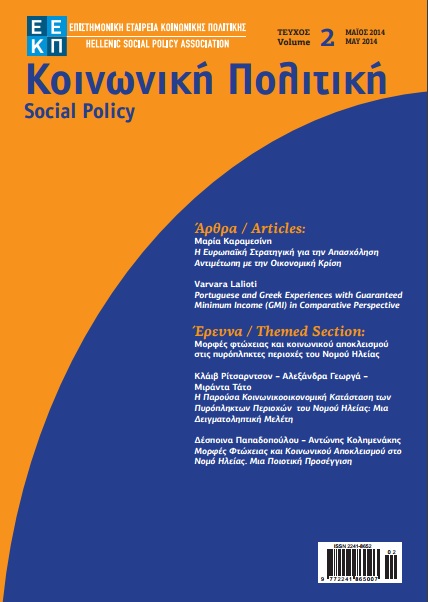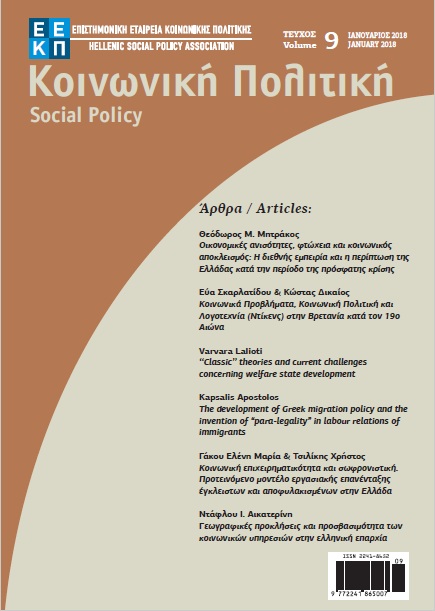Portuguese and Greek Experiences with Guaranteed Minimum Income (GMI) in Comparative Perspective
Abstract
Portugal and Greece have divergent histories with regard to Guaranteed Minimum Income (GMI), arguably the principal difference in the two countries’ evolutions of social assistance in recent decades. Neither had a GMI when EEC common criteria on sufficient resources and social assistance were issued in 1992. Portugal introduced a pilot programme in 1996 that went operational in 1997. Greece is among only a few European countries never to experiment with GMI. Only recently (in 2012) was a decision reached to launch a pilot GMI scheme, with implementation still forthcoming.
An account for the different Portuguese and Greek GMI experiences emphasizes the importance of actors such as political parties and trade unions. This actor-centred approach argues that the Portuguese GMI success is attributable to a coalition among key domestic policy actors, while ambivalent and fragmented attitudes among Greek policy actors hindered institution. The recent decision for a GMI pilot in Greece should be viewed as a product of the severe economic crisis and state debt obligations that leave little space for ambivalence.
Article Details
- How to Cite
-
Lalioti, V. (2017). Portuguese and Greek Experiences with Guaranteed Minimum Income (GMI) in Comparative Perspective. Social Policy, 2, 27–45. https://doi.org/10.12681/sp.10553
- Issue
- Vol. 2 (2014)
- Section
- Articles

This work is licensed under a Creative Commons Attribution 4.0 International License.
Authors who publish with this journal agree to the following terms:
Authors retain copyright and grant the journal right of first publication with the work simultaneously licensed under a Creative Commons Attribution Non-Commercial License that allows others to share the work with an acknowledgement of the work's authorship and initial publication in this journal.
Authors are able to enter into separate, additional contractual arrangements for the non-exclusive distribution of the journal's published version of the work (e.g. post it to an institutional repository or publish it in a book), with an acknowledgement of its initial publication in this journal.
Authors are permitted and encouraged to post their work online (preferably in institutional repositories or on their website) prior to and during the submission process, as it can lead to productive exchanges, as well as earlier and greater citation of published work.





